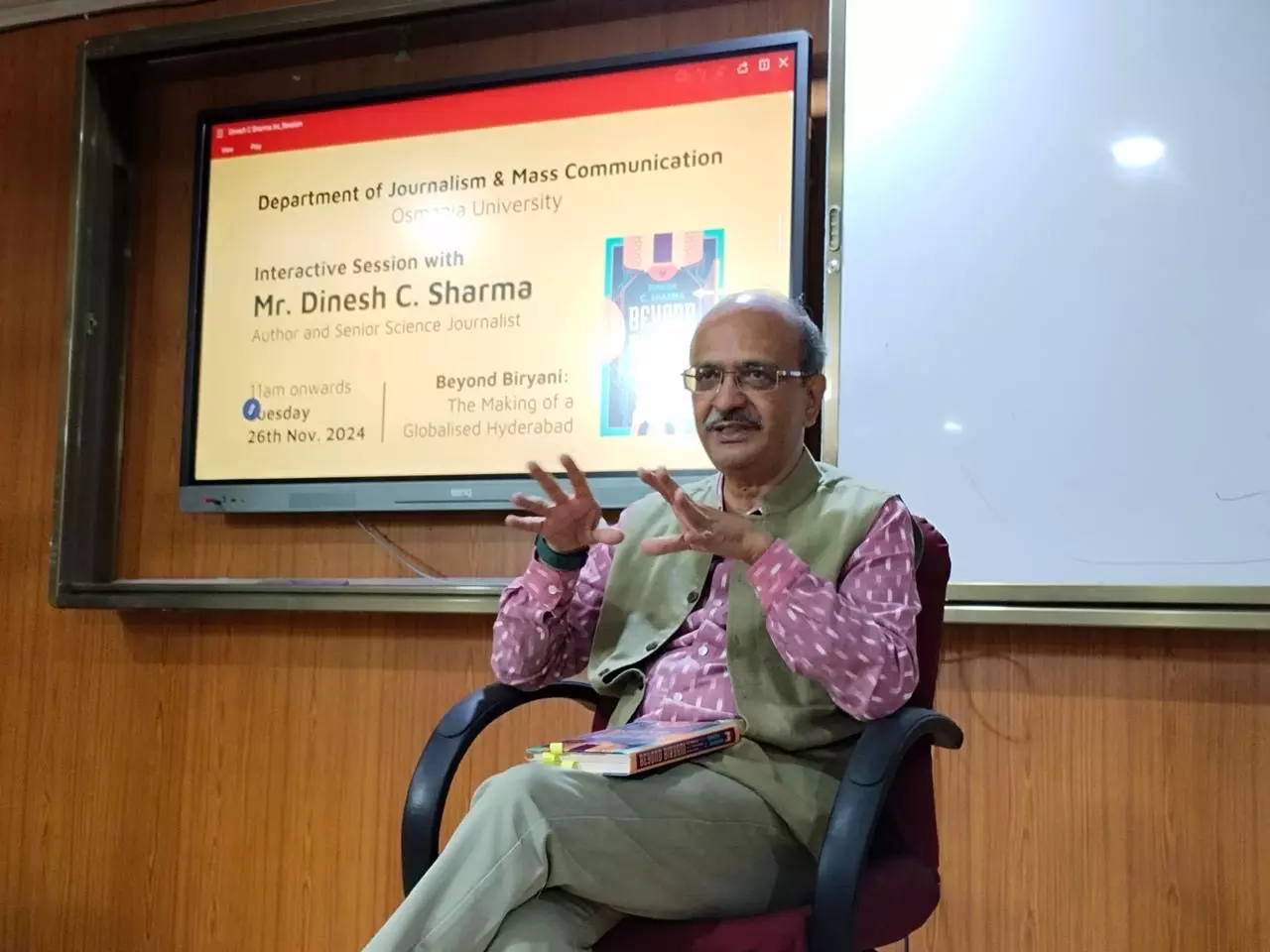Seats of Learning, PSUs, Policy Continuity Placed Hyderabad on Global Map: Author

Hyderabad: Hyderabad’s evolution into a global city is rooted in its early emphasis on knowledge creation, industrial base and decades of consistent government policies, observed Dinesh Chandra Sharma, journalist and author of Beyond Biryani: The Making of a Globalised Hyderabad.
Speaking at an interactive session at Osmania University’s department of journalism and mass communication, his alma mater, on Tuesday, Sharma said the city’s status as a globalised hub was not the by-product of liberalisation alone.
“The Foundations of Hyderabad were laid with the establishment of institutions like Osmania University, English and Foreign Languages University, and industrial research bodies such as the Regional Research Laboratory, now the Indian Institute of Chemical Technology (IICT),” he explained.
According to Sharma, the city’s modernisation began after the catastrophic 1908 Musi floods, with infrastructural overhauls laying the groundwork for development. Post-1948, Hyderabad saw the emergence of public sector undertakings like the Indian Drugs and Pharmaceuticals Limited (IDPL), which paved the way for industrial growth. “These factors created an ecosystem that allowed the city to capitalise on opportunities brought by globalisation,” Sharma observed.
He traced Hyderabad’s rise as an IT powerhouse to the 1990s, citing a combination of strategic vision and policy continuity. Madhapur’s selection as an IT hub in 1992 by the then Chief Minister N. Janardhan Reddy provided the first impetus, he noted. Later, Chief Minister Chandrababu Naidu’s Vision 2020 and the Cyberabad project, modelled on global development projects in Malaysia, further strengthened Hyderabad’s global positioning.
“This consistency in government policies since the early 1990s has ensured sustained investments and the growth of IT infrastructure,” he noted. Sharma also highlighted the significant role played by the Telugu diaspora in accelerating Hyderabad’s global integration. “The diaspora’s contributions in technology and investment have been pivotal in shaping the city as a global technology hub,” he said.
Reflecting on his own career, Sharma shared anecdotes from his early days as a journalist with the Press Trust of India (PTI). “Joining PTI’s science service helped me develop a deep interest in science and technology reporting,” he said. Addressing journalism students, he urged them to specialise in specific areas to build a distinctive career. “Put yourself in a global context and stay ahead of trends,” he advised.

